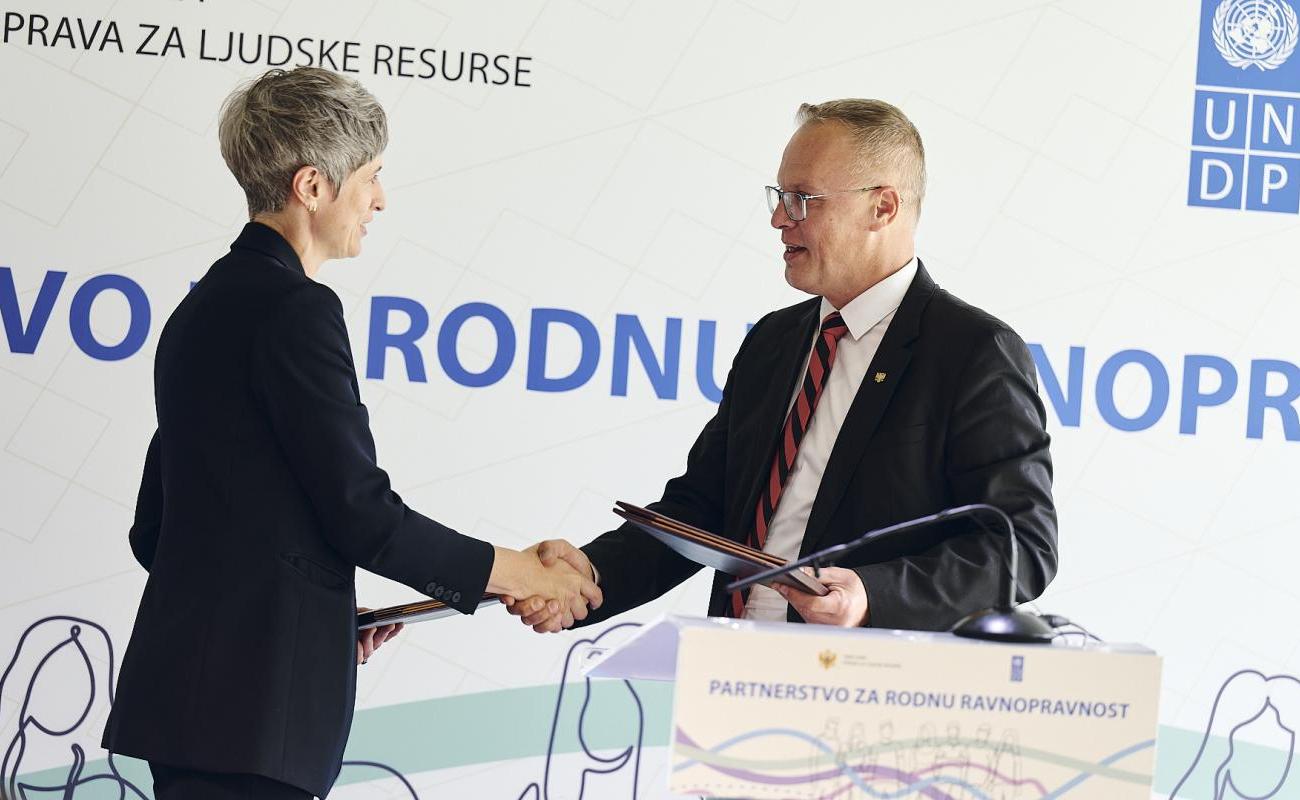Support of UNDP to introducing gender principles into public administration work

The United Nations Development Programme (UNDP) in Montenegro will support the Human Resources Management Authority this year in building capacities, with a specific focus on integrating gender principles into all aspects of the institution’s work.
Today, Ekaterina Paniklova, UNDP Resident Representative in Montenegro, and Agron Camaj, Director of the Human Resources Management Authority, signed a Partnership agreement for gender equality, marking the continuity of a longstanding strong partnership between UNDP and the Human Resources Management Authority.
Promoting gender equality and empowering women is an important part of UNDP’s mandate, which has demonstrated its strategic approach to advancing the gender equality agenda by developing the “Gender Equality Seal for Public Institutions” – a tool ensuring the integration of gender equality principles into the work of public institutions.
The Partnership agreement entails collaborative efforts to establish the highest international standards in the field of gender equality across all segments of institutional work – decision-making processes, policymaking, capacity building, and strategic planning. The aim of this initiative is for the Human Resources Management Authority to become a model of good governance in line with the concepts of human rights and gender equality, by strengthening the expertise of its staff in integrating a gender perspective.
“Gender equality is an integral part of all aspects of UNDP’s work and collaboration with partners. Our commitment to achieving gender equality is reflected in numerous initiatives aimed at empowering women, as well as in our strategic and continuous support to Montenegrin institutions striving for reform, efficiency, inclusivity, and sustainable development. With our partner on this journey, the Human Resources Management Authority, we have already worked on empowering public servants in areas such as gender equality, gender-responsive communication, and combating sexist hate speech. Recognizing that capacity building is a catalyst for individual, organizational, and systemic change, we are confident that together we will contribute to making gender equality more than just a concept but a reality.”Ekaterina Paniklova, UNDP Resident Representative in Montenegro
“State institutions must be sensitive to all forms of discrimination and inequality and this should not be an obligation only for those institutions that, in their basic competencies, deal with human rights. It is everyone’s obligation to find a model through their competencies to strive for a better society.”
